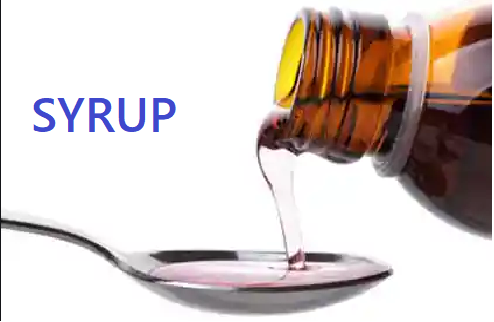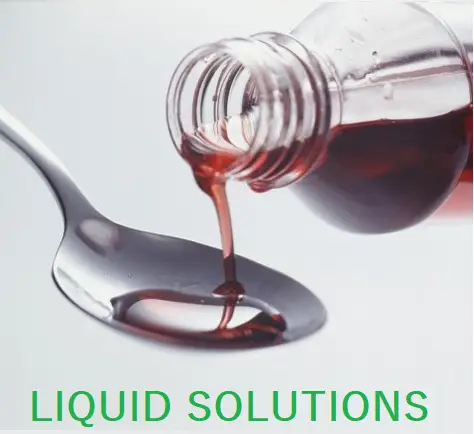MFR OF PARACETAMOL SUSPENSION
PURPOSE:
This Standard Operating Procedure is written to describe the formulae, manufacturing procedure, specifications, packing details of dosage form.
SCOPE: This procedure is performed and is applied during the manufacturing of dosage form.
RESPONSIBILITY / ACCOUNTABILITY: It is the responsibility of Manufacturing Chemist to follow and adhere to this SOP. The Production Pharmacist, QC/QA Manager is accountable for the strict adherence to the master.
COPY ISSUED TO:
- Master Copy: Manager Quality Assurance
- Copy No. 1: Production Pharmacist
- Copy No. 2: Manager Quality Control
- Copy No. 3: Liquid Section
| PRODUCT NAME: PARACETAMOL SUSPENSION | BATCH SIZE: 2000 LTRS. |
| PRODUCT REFERENCE CODE: | UNIT SIZE: 60 ml |
| GENERIC NAME: PARACETAMOL ORAL SUSPENSION I.P. | PACK SIZE: 12 x 12 x 60 ml |
| DOSAGE FORM: SUSPENSION | STRENGTH: N.A. |
| DEPARTMENT: LIQUID DEPARTMENT | EXPIRY DATE: AFTER 24 MONTHS FROM THE DATE OF MANUFACTURING |
COMPOSITION:
Each 5 ml contains:
Paracetamol I.P. 125 mg
EQUIPMENTS TO BE USED:
| SR. NO. | NAME OF EQUIPMENT | ASSEMBLING AS PER SOP NO. | CLEANING AS PER SOP NO. |
| 1 | Charging Tank – IV – 1300 Ltrs. | ||
| 2 | Colloid Mill | ||
| 3 | Charging Tank – V – 3500 Ltrs. | ||
| 4 | Storage Tank – III – 3500 Ltrs | ||
| 5 | Linear Bottle Washing Machine | ||
| 6 | Linear Bottle Filling and Sealing Machine | ||
| 7 | Automatic Bottle Labelling Machine | ||
| 8 | Shrink Packing Machine |
RAW MATERIAL: –
| S.NO. | INGREDIENTS | STD | Theoretical Quantity Req. | Overages % | Total Quantity Used |
| 1. | AEROSIL | I.P | 4.000 | 4.000 KGS. | |
| 2. | ASPARTUM | I.P | 2.400 | 2.400 KGS. | |
| 3. | CARMOISINE COLOUR | FCF | 40.000 | 40.000 KGS. | |
| 4. | CHLOROFORM | I.P | 3.200 | 3.200 KGS. | |
| 5. | CITRIC ACID | I.P | 0.600 | 0.600 KGS. | |
| 6. | SUGAR | F.G | 600.000 | 600.000 KGS. | |
| 7. | METHYL PARABEN (PLAIN) | I.P | 2.000 | 2.000 KGS. | |
| 8. | PARACETAMOL | I.P | 50.000 | 4.00 | 52.00 KGS. |
| 9. | P.G. | I.P | 10.000 | 10.000 KGS. | |
| 10. | PROPYL PARABEN (PLAIN) | I.P | 0.400 | 0.400 KGS. | |
| 11. | PVPK – 30 | I.P | 0.200 | 0.200 KGS. | |
| 12. | RASPBERRY FLAVOUR | F.G | 6.000 | 6.000 LTRS. | |
| 13. | SORBITOL SOLUTION | I.P | 300.000 | 300.000 KGS. | |
| 14. | TWEEN – 80 | I.P | 3.200 | 3.200 KGS. | |
| 15. | TRI POTASSIUM CITRATE | I.P | 2.400 | 2.400 KGS. | |
| 16. | XANTHAN GUM | I.P | 6.600 | 6.600 KGS. |
PACKING MATERIAL:-
| S.NO. | NAME OF THE MATERIAL | THEORETICAL QUANTITY REQ. | FOR RECORD | TOTAL QUANTITY USED |
| 1. | 60 ML AMBER ROUND BTLS. | 33333.333 | 33333.333 NOS. | |
| 2. | ADHESIVES TAPE ROLL BROWN | 4.000 | 4.000 NOS. | |
| 3. | GUM ACCACIA | 1.500 | 1.500 KGS. | |
| 4. | PILFER PROOFS CAPS 25 MM | 33333.333 | 33333.333 NOS. | |
| 5. | UNIT CARTON | 33333.333 | 2.000 | 33335.333 NOS. |
| 6. | LABEL | 33564.814 | 3.000 | 33567.814 NOS. |
| 7. | CORRUGATED BOX | 231.481 | 231.481 NOS. | |
| 8. | SHRINK FILM 240X220MM | 2777.777 | 2777.777 NOS. |
MANUFACTURING SPECIFICATION:
- Average fill of each Bottle is 60 ml.
- Volume variation limit allowed in each filled Bottle is 60 ml to 62 ml.
- Make up the final volume of the suspension accurately.
- Transfer the suspension from charging tank L-10 to storage tank L-14 after complete charging of batch.
- Mix the batch, Fill the bottles and also perform the primary packing of bottles at temperature not more than 250 C and Relative Humidity not more than 40.
Yield:
- Theoretical Yield is 33333 Bottles.
- Expected Practical Yield is 33333 + 2% Bottles.
Packing Details:
- Wash the bottles on Linear Bottle Washing Machine L-28 and operate it as per its SOP.
- Transfer the suspension from storage tank to Linear Bottle Filling and Sealing Machine for filling and then sealing of the bottles as per its SOP.
- Fill 60 ml suspension in 60 ml amber round bottle and use 25 mm PP Cap to seal the bottle mouth.
- Inspect the each filled and sealed bottle for proper sealing and presence of the foreign particles, if any.
- Label every inspected bottle by using the Automatic Bottle Labelling Machine .
- Pack each filled and sealed bottle in unit carton individually.
- Make a group of 12 bottles packed in unit cartons.
- Wrap this bundle in the thermoplastic film and shrink pack it by operating Shrink Packing Machine as per its SOP.
- Pack such 12 shrinked packets in the Corrugated box. Thus each corrugated box contains 12 x 12 x 60 ml filled and sealed bottles.
- Seal each corrugated box with adhesive tape and label it properly by affixing the specified label.
MANUFACTURING PROCESS:
- Soak 6.6 kgs of Xanthan Gum in 70 Ltrs of purified water in Stainless Steel Containers and keep it for 6 hours.
Addition of Ingredients into the Charging Tank while stirring continuously:
- Transfer the 600.0 kgs of invert sugar to Charging Tank through transfer pump.
- Dissolve 2.0 kgs of Methyl Paraben Plane and 0.400 kgs of Propyl Paraben Plane in 10 Ltrs of hot PG water and add to the bulk batch.
- Dissolve 2.4 kgs of Aspartum in 12 Ltrs of purified water and add to the bulk batch.
- Dissolve 2.4 kgs of Tri Potassium Citrate in 15 Ltrs of water.
- Dissolve 0.600 kgs of Citric Acid in 3 Ltrs of water.
- Dissolve 0.200 kgs of PVPK – 30 in 3 Ltrs of water.
- Add 300.0 kgs of Sorbitol Solution to the bulk batch.
- Add 52.0 kgs of Paracetamol, previously sifted through Stainless Steel mesh #40, to the bulk batch.
- Add 4.0 kgs of Aerosil to the bulk batch.
- Add previously soaked Xanthan Gum to the same charging tank.
- Add 200 Ltrs of purified water to the bulk.
- Dissolve 40.0 gms of Carmoisine colour in 3 Ltr of hot purified water and add to the bulk batch.
- Colloid the batch through Colloid Mill by operating it as per its SOP and transfer it to the Charging Tank .
- Add 6.0 Ltrs of Raspberry Flavour to the bulk.
- Add 3.2 kgs of Tween – 80 to the bulk batch.
- Add 3.2 kgs of Chloroform to the bulk batch.
- Make up the volume with purified water to 2000 Ltrs and Mix the whole batch for one hour.
- Leave the Suspension to settle for overnight or for a minimum of 8 hours.
- Again check the volume and make up with purified water to 2000 Ltrs and mix until homogeneous.
- Check the pH of Solution to be in between 5.0 – 6.0.
- Send the sample to Quality Control Department for bulk testing.
- Transfer it to the Storage Tank.
IN-PROCESS CONTROLS:
The following in-process controls should be maintained during the processing:
- Check Raw materials used for manufacturing purpose are all approved materials and have ‘Released’ labels fixed on it.
- All weighed Raw materials should be counter-checked by Manufacturing Chemist. If any discrepancy is noticed, it should be immediately brought to the notice of Production Pharmacist and QC/QA Manager.
- Physical characteristics of Raw material like colour, odour, and consistency are checked before compounding.
- Final volume should be made as per Standard Operating Procedure using correct dipstick in the Manufacturing Chemist.
- pH of the bulk should be checked and it should be with in specified limits.
- Bulk sample should be sent for analysis to Quality Control Department before starting the filling and sealing stage.
- The Assistant Manufacturing Chemist should check intermittently filled volume at 30 minutes interval and record for the same should be kept in Batch Manufacturing Record.
- The net volume should be checked for all the filling nozzles and in no case, net volume should be less than volume claimed on the label.
Limit for Volume Variation: Volume claimed on the label + 2ml
- Visual inspection of filled and sealed bottles should be done as per SOP and the record of the same should be kept in the Batch Manufacturing Record.
- Suspensions should be filled under constant slow speed stirring to maintain uniformity of contents.
- The labels and cartons should be checked thoroughly for proper batch coding.
- Intimation should be sent to Quality Control Department for finished product sampling and testing.
- After the completion of labelling and packaging, the coded labels and cartons should be accounted for and rejected printed material should be destroyed in the presence of QC/QA Manager. Maintain the destruction of the same in the Batch Manufacturing Record.
- It will be ensure that filling or packaging equipment has been properly cleaned.
- Filling or packaging of next product should not commence until the IPQA has given the ‘Line Clearance’.


